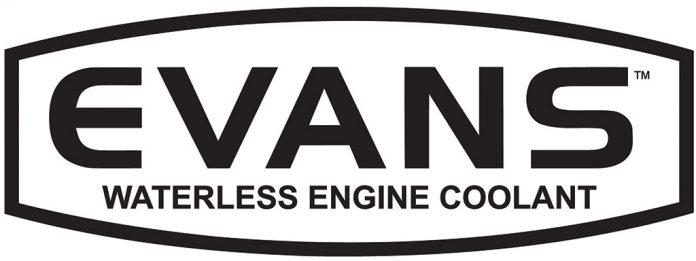Often, new products are slow to be embraced by an industry, especially when they might appear to disrupt a well-established existing technology. Water has been used to cool engines for almost 100 years for good reasons: nothing transfers heat better than water, the cost is low, and it is abundant. The trade-off of water’s superior heat transfer capabilities vs its low boiling point and corrosiveness has defied solution by conventional coolant means. Engine manufacturers have been combating heat transfer issues with a multitude of modifications; larger fans, more efficient radiators, additives, and applying engine performance limitations.
Antifreeze was developed to overcome the shortcomings of water as a heat transfer fluid in an engine. Glycols have been used with water, usually in a 50/50 mix to protect from freezing. Corrosion inhibitors are added to help protect vehicles’ radiators, which often are composed of a range of electrochemically incompatible metals. Although corrosion inhibitors are added to the ethylene glycol water mix, they eventually drop out and the coolant needs to be periodically replaced.
As previously stated, water has superior heat transfer capabilities, but it MUST remain in its liquid state to do the job – and that is only between the temperatures of 32° F and 212°F. When water turns to vapor it loses 96% of its effectiveness, and that’s when things start to happen in a hurry.
Evans waterless coolant protects from minus 40°F to 375°F. That’s right; Evans coolant doesn’t boil until 375°F and therefore provides a wide safety margin between the operating temperature and the coolant’s boiling point.
When water begins to boil it turns to vapor, builds pressure and traps air bubbles that prevent efficient heat transfer. The vapor insulates the metal from the liquid and hot spots form. That’s where the trouble begins.
With Evans waterless coolant, no water vapor also means there is no evaporation of coolant, eliminating the need for “topping off” the system, unless of course you have a leak. Evans maintains its liquid state and provides continual liquid to metal contact.
Coolant overheating and “afterboil” have been eliminated, and your coolant system will never boil over. The coolant additives in Evans waterless formula stay suspended in the coolant nearly indefinitely, eliminating the need to change the coolant.
Typically, cooling systems have a 10 to 15 lb. pressure cap to raise the boiling point. Each pound of pressure raises the boiling point by about three degrees, which means a 15 lb. cap would raise the boiling point to over 250° F. Evans operates under a much lower pressure, (about 3 – 4 psi) decreasing stress on hoses and gaskets, reducing the likelihood of leaks. Additionally, a lower pressure brings an added safety element to the operator. Opening the cap on a hot radiator can result in severe injury to anyone within a few feet of the radiator.
Cooling system failures account for 40% of maintenance problems and the resulting downtime is costly. A high boiling point can be important in an engine running in hot, dusty, dirty conditions. A radiator can clog easily leading to overheating, severe engine damage, and costly down time. Nothing will disrupt an operation faster than an overheated engine. Missed, or delayed deliveries can cost more money than cumulative maintenance issues.
With its high boiling point, Evans has the capacity to safely operate at higher temperatures and protect the engine at temperatures well above the boiling point of water. Overheating is avoided – even with heavy loads, high temperatures and under hostile operating conditions. Continual, reliable operation under in a stressful environment may be the most valuable advantage to using a waterless coolant.
Water is universally recognized as the root cause of corrosion and erosion inside engine blocks and cooling systems. While additives do a good job of protection, they eventually fall out and protection is diminished over time.
Water contributes to pump and cylinder liner cavitation, corrosion and electrolysis, as well as hot spots that can damage engines. Cylinder liner cavitation alone can require an engine rebuild. Southwest Research Institute (SWRI) tested Evans waterless coolant in the John Deere Cavitation Test in April 2009, along with multiple water-based coolants, and the results were impressive. Evans tested about 70% better than the previously best tested coolant against cylinder liner cavitation erosion.
With Evans future replacement and disposal costs are avoided. The additives stay stable and in suspension during storage and it is not necessary to use supplemental coolant additives (SCA’s) or extenders with Evans waterless coolants. Evans is a maintenance free coolant and lifetime coolant, and chemically treated filters should be replaced with non-chemical filters after a conversion to Evans waterless coolant.
There is nothing more abundant or useful on earth as water. It sustains life and we can’t live without it. But we can live without it in our engines.
To learn more about Evans waterless cooling technology visit
www.evanscooling.com.








